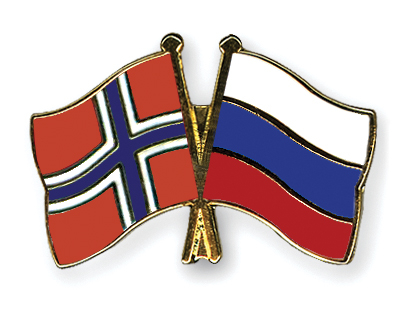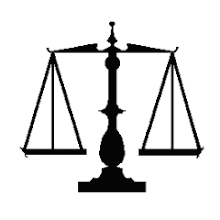WASHINGTON/OSLO (Reuters) - Barack Obama won the Nobel Peace Prize on Friday in a stunning decision that honored the first-year U.S. president more for promise than achievement and drew both praise and skepticism around the world.
The bestowal of one of the world's top accolades on Obama, who has yet to score a major foreign policy success after nearly nine months in office, was greeted with gasps from the audience at the announcement ceremony in Oslo.
Describing himself as surprised and deeply humbled, Obama said he would accept the award as a "call to action" to confront the global challenges of the 21st century.
"I do not view it as a recognition of my own accomplishments but rather an affirmation of American leadership on behalf of aspirations held by people in all nations," he said in the White House Rose Garden.
The Norwegian Nobel Committee praised Obama for "his extraordinary efforts to strengthen international diplomacy and cooperation between peoples," citing his fledgling push for nuclear disarmament and his outreach to the Muslim world.
Obama, a Democrat who took office as the first black U.S. president in January, has been widely credited with improving America's global image after the eight-year presidency of George W. Bush, who alienated both friends and foes with go-it-alone policies like the 2003 U.S.-led invasion of Iraq.
But critics called the Nobel committee's decision premature, given that Obama has achieved few tangible gains as he grapples with challenges ranging from the war in Afghanistan and the Israeli-Palestinian conflict to nuclear standoffs with Iran and North Korea.
Obama, told of the prize in a pre-dawn call from his press secretary, now also has the burden of living up to its expectations.
The president, who will travel to Oslo to receive the award on December 10, plans to donate the prize money of 10 million Swedish crowns -- roughly $1.4 million -- to charity, the White House said.
LITANY OF UNRESOLVED PROBLEMS
Obama, 48, has struggled with a litany of foreign policy problems bequeathed to him by Bush, while taking a more multilateral approach than his predecessor.
Obama acknowledged that while winning a prize dedicated to peace, he was commander-in-chief of a country in two wars. "We have to confront the world as we know it," he said.
He won the award on the same day he was convening his war counsel to weigh whether to send thousands more troops to Afghanistan to turn the tide against a resurgent Taliban.
His troubles at home include a battered economy and a fierce debate over healthcare reform that have chipped away at his once-lofty approval ratings and a Republican opposition that has moved well past the honeymoon phase.
"One thing is certain -- President Obama won't be receiving any awards from Americans for job creation, fiscal responsibility, or backing up rhetoric with concrete action." Republican National Committee Chairman Michael Steele said in a statement.
But Obama is still widely seen around the world as an inspirational figure.
"Very rarely has a person to the same extent as Obama captured the world's attention and given its people hope for a better future," the Nobel committee said in its citation.
LAST SLAP FOR BUSH?
Some analysts saw it as a final slap in the face for Bush from the European establishment, which had resented what they saw as his arrogant "cowboy diplomacy" in world affairs.
U.S. State Department spokesman P.J. Crowley told reporters the prize could stimulate diplomacy.
"We think that this gives us a sense of momentum when the United States has accolades tossed its way rather than shoes," he said.
Crowley's remark was an apparent reference to a December 2008 incident in which an Iraqi reporter hurled his shoes at Bush and called him a "dog" at news conference, both grave insults in the Arab World.
While the award won praise from statesmen such as Nelson Mandela, Mikhail Gorbachev and Jimmy Carter, all Nobel laureates, it was also attacked in some quarters as hasty and undeserved.
Afghanistan's Taliban mocked the award.
Taliban spokesman Zabihullah Mujahid, speaking to Reuters by telephone from an undisclosed location, said it was absurd to give a peace award to a man who had sent 21,000 extra troops to Afghanistan, and Obama "should have won the 'Nobel Prize for escalating violence and killing civilians.'"
Despite declining U.S. public support for the war, Obama is considering a request for at least 40,000 more troops from his top commander, who says otherwise the mission could fail.
Nobel Committee Chairman Thorbjoern Jagland rejected suggestions from journalists that Obama was getting the prize too early. "We hope this can contribute a little bit to enhance what he is trying to do," he told a news conference.
Obama is the fourth U.S. president to be awarded the Nobel Peace Prize after Carter won in 2002, Woodrow Wilson picked it up in 1919 and Theodore Roosevelt was chosen for the 1906 prize.
TOO HASTY?
Iranian Foreign Minister Manouchehr Mottaki called the award premature, but at the same time contrasted Obama with the Bush administration.
"The decision in this connection was hasty and the granting of this prize was premature," Mottaki told the semi-official Mehr news agency. "If this prize serves as an element of encouragement for the practical negation of the previous U.S. administration's war-mongering and unilateral policies with an orientation on a just peace we would not oppose it."
Liaqat Baluch, a senior leader of the Jamaat-e-Islami, a conservative religious party in Pakistan, called the award an embarrassing "joke."
But chief Palestinian peace negotiator Saeb Erekat, expressed hope Obama would help achieve Middle East peace.
Lauding Obama, U.N. Secretary General Ban Ki-moon said, "His commitment to work through the United Nations gives the world's people fresh hope and fresh prospects."
While many Americans voiced pride, some were puzzled.
"It would be wonderful if I could think why he won," said Claire Sprague, 82, a retired English professor as she walked her dog in Manhattan's Greenwich Village. "They wanted to give him an honor I guess, but I can't think what for."
Obama's former Republican presidential rival John McCain said Americans should be pleased for their president, but also insisted he now has "even more to live up to."
The committee said it attached "special importance to Obama's vision of and work for a world without nuclear weapons," saying he had "created a new international climate."
On other pressing issues, Obama is still searching for breakthroughs on Iran's disputed nuclear program, on stalled Middle East peacemaking and the fight against climate change.
Israeli Prime Minister Benjamin Netanyahu said he looked forward to working with Obama on peace efforts, a day after Israel's foreign minister said there was no chance of a peace deal for many years.
(Additional reporting by Oslo newsroom, Washington bureau, Kamran Haider in Pakistan, Mohammed Assadi, Nidal al-Mughrabi in Gaza; Mark Denge in Nairobi, Jason Webb in Spain; Editing by Frances Kerry)
related sites www.study-us.info
 Many travelers to Asia find themselves with a layover in Hong Kong, a thriving metropolis of seven million people where East collides with West. Reclaimed by China in 1997 but still a melting pot of international commerce, Hong Kong is awash in gleaming highrises and blinking neon signs touting some of the biggest names in business.
Many travelers to Asia find themselves with a layover in Hong Kong, a thriving metropolis of seven million people where East collides with West. Reclaimed by China in 1997 but still a melting pot of international commerce, Hong Kong is awash in gleaming highrises and blinking neon signs touting some of the biggest names in business.















